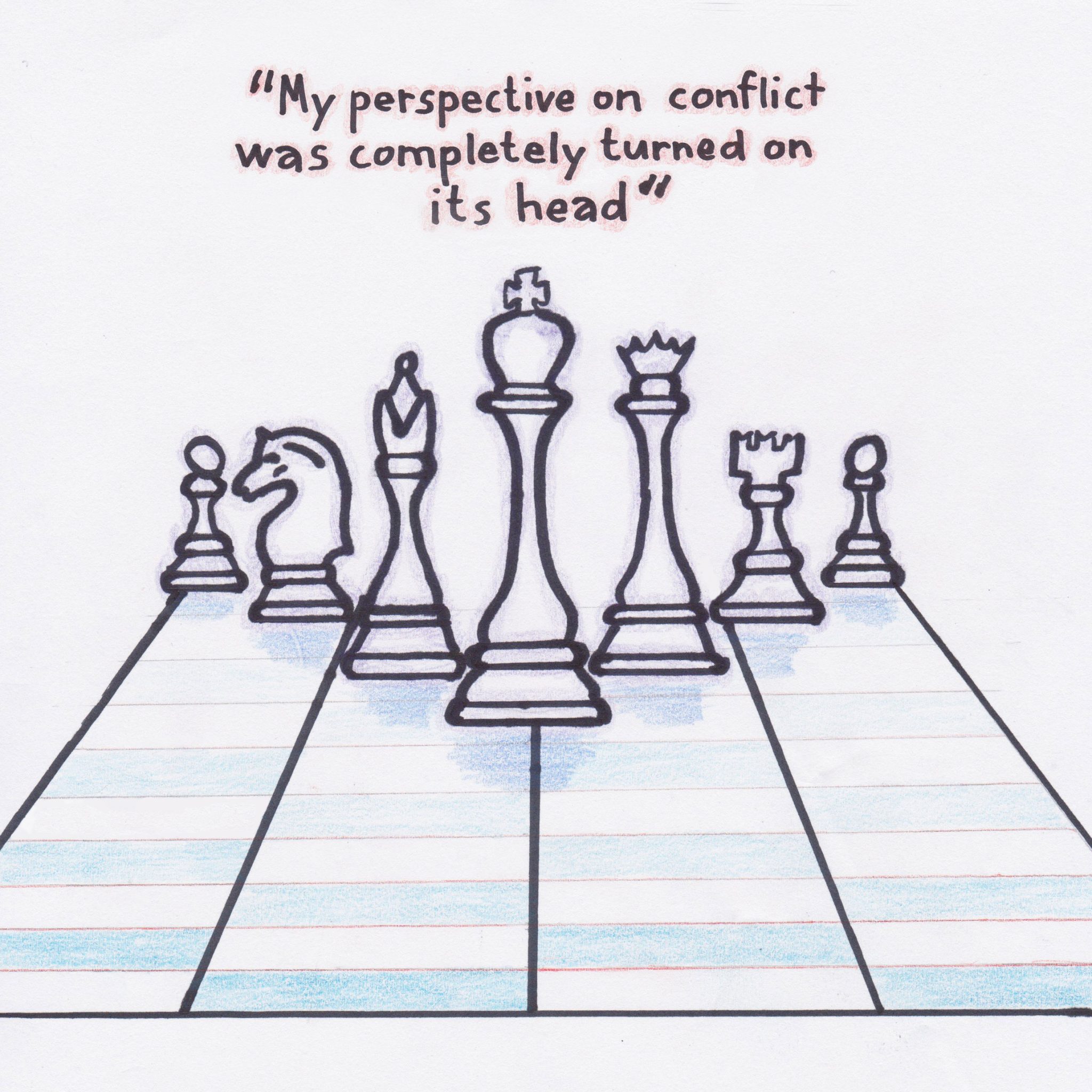Conflict is still widely viewed as negative, to be avoided at all costs. The presence of conflict is often seen as a sign of an unhealthy relationship.
When I was introduced to ORSC, on the ORS@Work course, my perspective on conflict was completely turned on its head.
If you are familiar with the ORSC methodology, you may already understand conflict as a valuable signal for change. There is a lot we can learn from conflict that can hugely improve and nurture our relationships at work and at home.
If you understand these 6 things about conflict, your relationships will improve dramatically:
1. Enabling people to feel heard and understood helps to create healthy relationship foundations
People have a fundamental desire to feel both heard and understood. Not feeling heard and understood may lead us to communicate through: blaming, stonewalling, contempt and flooding – the four toxic styles of communication (also known as the Four Horsemen of the Apocalypse).
If the voices within a system really listen to each other, it can prevent the escalation of toxic behaviours. Listening is the first step towards resolving relationship issues, but without taking necessary actions, the situation will likely re-escalate.
2. Practicing and exercising self-control can prevent the conflict itself becoming the problem
Some things can never be unsaid and it’s possible to permanently damage a relationship by displaying toxic behaviours during conflict. Sometimes the damage caused by the nature of conflict can over-shadow the initial issues that caused the conflict in the first place. Self-control does not come naturally to us all and is something that needs practice. However, it’s important when practicing self-control to avoid falling into “stonewalling” habits by not showing any emotion or cease communicating at all.
3. Every relationship has a lifespan
Staying in a relationship, or leaving it, is a choice. Everyone in the relationship has this choice. If you mutually choose to stay in relationship, you may be able to enjoy a stronger, deeper connection with your team, partner, family member etc. If you choose to leave the relationship, it does not mean the relationship has to be viewed as a failure, it has just reached the end of its life. Every relationship has a lifespan.
4. Re-alignment is crucial
Once conflict has taken place, it’s important for participants of the relationship to re-align to a common goal. This does not mean everyone has to agree on everything – in fact you may still disagree in many areas – and that’s okay. Re-alignment just means you reconnect to your common purpose and are clear on how to achieve your goals as a unit.
5. Understanding that people’s logic makes perfect sense (to them) will help you to be more empathetic
How people act and the way they communicate has to do with their own unique life experiences. If you were that person, with their values, the values they have been surrounded by, their upbringing, their past relationships, their traumas and their personality, you would feel and react to things the same way as they do. Putting ourselves into someone else’s shoes to try to understand them is a powerful tool, but the only thing we can trulyunderstand about someone else’s logic is that it makes perfect sense (to them).
“I judge people by their own principles – not my own” – Martin Luther King Jr
6. There is always (at least) 2% truth in each perspective
Have you ever had an argument with someone and gone away thinking “they are completely wrong?” or maybe even “they are crazy…”? Behind every perspective, there is at least 2% truth, even if you feel adamant you are right, there is always something in their viewpoint that can be reflected on.
More on Conflict & Toxic Relationships:
If you would like to delve more into the subject of conflict, our ORSC introductory courses are the perfect place to do so. In two days, you will discover and practice an invaluable set of exercises to improve your relationships both at work and at home
Click here for more information on upcoming courses






